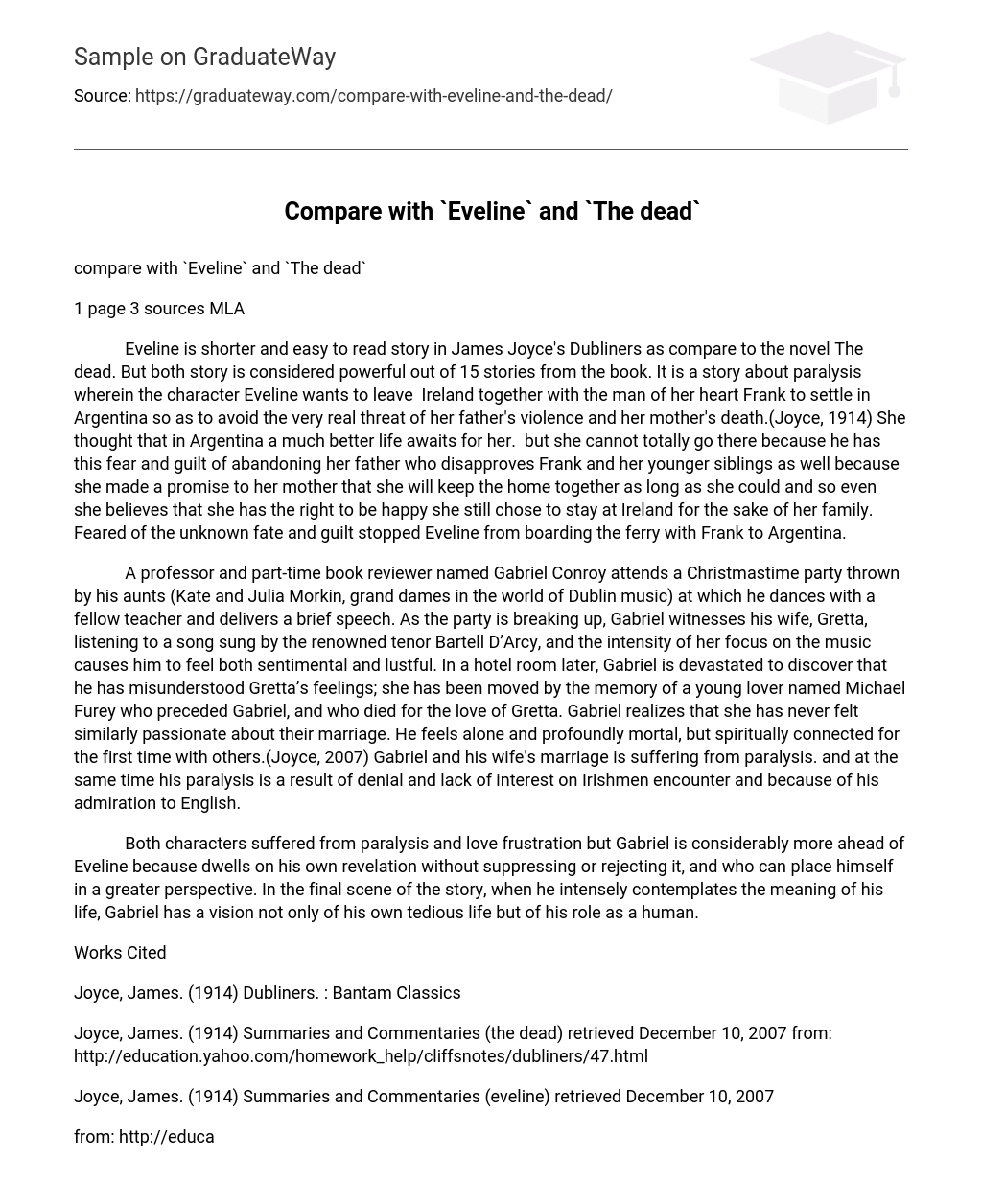Eveline is a shorter and easier-to-read story in James Joyce’s Dubliners compared to the novel The Dead. However, both stories are considered powerful out of the 15 stories from the book. Eveline is a story about paralysis, where the character Eveline wants to leave Ireland with her heartthrob Frank to settle in Argentina, thus avoiding the very real threat of her father’s violence and her mother’s death (Joyce, 1914).
She thought that a much better life awaited her in Argentina, but she couldn’t go there completely because of her fear and guilt of abandoning her father, who disapproved of Frank and her younger siblings as well. She made a promise to her mother that she would keep the home together as long as possible. Even though she believed that she had the right to be happy, she chose to stay in Ireland for the sake of her family. Eveline was afraid of the unknown fate and felt guilty about leaving, which stopped her from boarding the ferry with Frank to Argentina.
At a Christmastime party hosted by his aunts, Kate and Julia Morkin, who are grand dames in the world of Dublin music, Gabriel Conroy attends as a professor and part-time book reviewer. During the party, he dances with a fellow teacher and gives a short speech. As the party winds down, Gabriel notices his wife Gretta listening intently to Bartell D’Arcy’s performance of a song. The intensity of her focus on the music stirs up both sentimental and lustful feelings in Gabriel.
Afterwards, in a hotel room, Gabriel is devastated to discover that he has misunderstood Gretta’s feelings. She has been moved by the memory of a young lover named Michael Furey who preceded Gabriel and died for the love of Gretta. Gabriel realizes that she has never felt similarly passionate about their marriage. He feels alone and profoundly mortal but spiritually connected for the first time with others (Joyce, 2007).
Gabriel and his wife’s marriage are suffering from paralysis. At the same time, his paralysis is a result of denial and lack of interest in Irishmen encounters because of his admiration for English.
Both characters suffered from paralysis and love frustration, but Gabriel is considerably further ahead than Eveline because he dwells on his own revelation without suppressing or rejecting it. He can place himself in a greater perspective. In the final scene of the story, when he intensely contemplates the meaning of his life, Gabriel has a vision not only of his own tedious life but also of his role as a human.
Works Cited
- Joyce, James. (1914) Dubliners. : Bantam Classics
- Joyce, James. (1914) Summaries and Commentaries (the dead) retrieved December 10, 2007 from: http://education.yahoo.com/homework_help/cliffsnotes/dubliners/47.html
- Joyce, James. (1914) Summaries and Commentaries (eveline) retrieved December 10, 2007 from: http://education.yahoo.com/homework_help/cliffsnotes/dubliners/14.html





